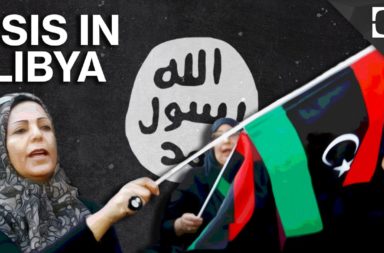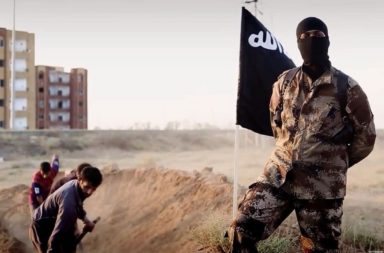It’s official. The world has now acknowledged the extent of ISIS’ crimes.
In a decisive statement late last week, Secretary of State John Kerry declared Sunnni militant group Islamic State to have committed a number of human rights violations against ethnic minorities across the regions of Kurdistan, Iraq and Syria.
The statement follows a resolution unanimously passed by Congress on Monday, declaring such violations to have already taken place. Following the release of a State Department and American intelligence services review, Kerry acknowledged that crimes against humanity, genocide and ethnic cleansing have indeed taken place, and that the administration will do everything in its power to document and hold to account those responsible.
Addressing reporters at the State Department, Secretary Kerry stated “the fact is that Daesh kills Christians because they are Christians; Yazidis because they are Yazidis; Shia because they are Shia… Its entire worldview is based on eliminating those who do not subscribe to its perverse ideology.”
The statement made by the Secretary of State was welcomed by a number of religious and civil society groups who have wanted to see such a statement backed up by decisive action. However, while Kerry’s statement has generated a significant media storm, many are still concerned that without a change in military policy in the region, this action will serve as little more than political symbolism.
Kerry has argued against this point, promising that the United States will seek to document and prosecute violations in order to hold those responsible to account. Indeed, the review makes note of a number of specific human rights violations, including the intentional destruction of a range of religiously significant items, the systematic murdering of ethnic minorities such as Shiite Turkmens and Christians in Mosul, and the use of children in war.
The State Department has been in discussion with the United Nations Security Council in an attempt to determine the ability of parties to refer these crimes to international bodies such as the International Criminal Court. Nevertheless, such activities have not yet yielded tangible results. As such, many are weary that just as in the case of the Syrian conflict, it may prove impossible to achieve meaningful outcomes in a region fraught with so many political and military complexities.
American representatives have continued to defend their presence in the region, arguing that they are taking an active position of leadership in eradicating the al-Qaeda offshoot. Indeed, Secretary Kerry noted that US led air strikes have helped drive militants out of 40% of formerly ISIS controlled territories in Iraq, as well as 20% of such areas in Syria.
At the same time, chief of staff to the Kurdish President Fuad Hussein has claimed that America continues to underestimate the presence of ISIS forces by as much as a factor of eight, placing the coalition against ISIS in a strategically weak position. While estimates from American government authorities place the total ISIS presence across the region at 20-30,000, Hussein has asserted that the true figure could be as high as 200,000. As evidence, he points to the continued travails experienced by Kurdish forces since a surge in numbers among ISIS led to their strengthened position in northern Iraq and Baghdad.
Moreover, as ISIS continues to assert its powers across Syrian and Kurdish provinces including Kobani and Jalawla, Hussein fears that the militia is becoming increasingly well placed within the region. The group has continued to seize weapons and heavy artillery provided by American forces to groups such as the Peshmerga and the Iraqis, and there are concerns that ISIS forces are fast learning to skillfully command such equipment.
This disagreement on the precise number of ISIS troops appears to be highly significant. Indeed, it serves as an important indicator of the difficulty America and its allied forces will face in eliminating the group entirely. The United States has committed its armed services to doing everything it can to eradicate Islamic State militants, yet the group has reasserted its strength against Kurdish, Iraqi and Syrian forces, despite support from Russian and American bombing in strategically important areas.
It is for this reason that Hussein has called for greater support from the United States, arguing that heavy artillery and greater weaponry is now required if ground forces are to have any chance of defeating ISIS.
A recent statement by the chairman of the United States Joint Chiefs of Staff General Martin Dempsey served to only compound matters as the general stated that a trained and efficient army of 80,000 would be required in Iraq in order to eradicate ISIS. Local forces are skeptical that the country will be able to achieve this without significant outside support, and many are cognizant of the unwillingness of the west to commit necessary ground forces. Therefore, while the recent statement by Secretary Kerry was broadly welcomed by public figures, many are still highly critical of the administration’s position in the region.
Secretary Kerry has maintained that he remains optimistic about the future in the region, as he hopes that the decision will inspire greater action on behalf of a range of parties. As evidence he has pointed to the recent decision by the United States to accept 10,000 refugees as a sign that the world is currently willing to act in the face of this challenge. This however, has come almost five years after the outbreak of the conflict and could indeed prove just how long the world still has ahead, before it can expect to see positive actions.
Whether or not Kerry will prove to be right in his optimism is a matter that only the future will decide. However, it appears clear that the world now has a more deeply concentrated attention on the horrors occurring in the region. Let’s hope that this attention leads to more than just words. Without it, we know that such optimism is misplaced.





